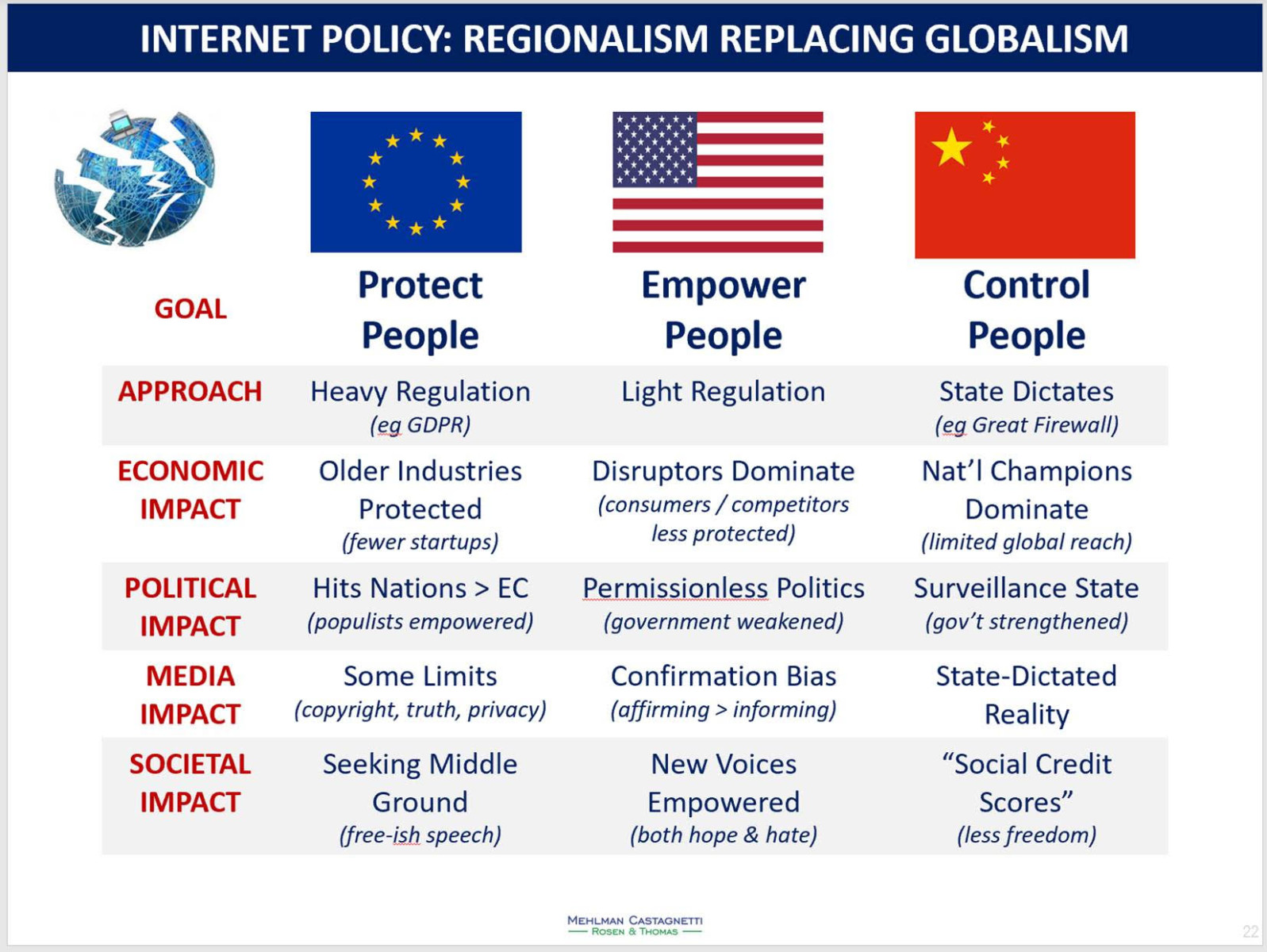
Source: Bruce Mehlman
The internet has been Balkanized.
There is no longer one single web as originally imagined by Vint Cerf and others. Rather, thanks to government controls, there are several distinct versions of the internet: China has its own Internet; Iran has its one, as does North Korea. Cuba, Russia, Sri Lanka (even France) are all in on the action. Any country where a threat exists from, facts, news, history, really any non-official information as to most of the world operates has a problem with a free and open web.
I was reminded of this growing split via Bruce Mehlman; I like the analytical framework that he has assembled for thinking about this: The 3 dominant visions for the internet comes from three distinct regions: Europe, China, & USA.
The Europeans want to protect people, both from the internet and via its usage. China wants and needs to control its citizens, lest they wrest away not only the web but power and state control. The United States operates from the belief that the internet cam empower people to engage in commerce, debate, politics, etc. Disruption, change, experimentation is ubiquitous. The wild west is an apt metaphor.
It is not a coincidence that democratic countries see one commercialized internet, with Content accessible to everyone. At least, everyone living in open societies. If you live under those authoritarian regimes listed above — assuming you have shelter, food, and electricity — you experience something else entirely.
See Also:
Welcome to the Splinternet (Scott Malcomson, December 22, 2015)
Contract for the Web: A global plan of action to make our online world safe and empowering for everyone.
How Iran Turned Off the Internet
The Splinternet Is Growing (John Roberts, May 29, 2019)
What the North Korean internet really looks like (Saira Asher, 21 September 2016)

